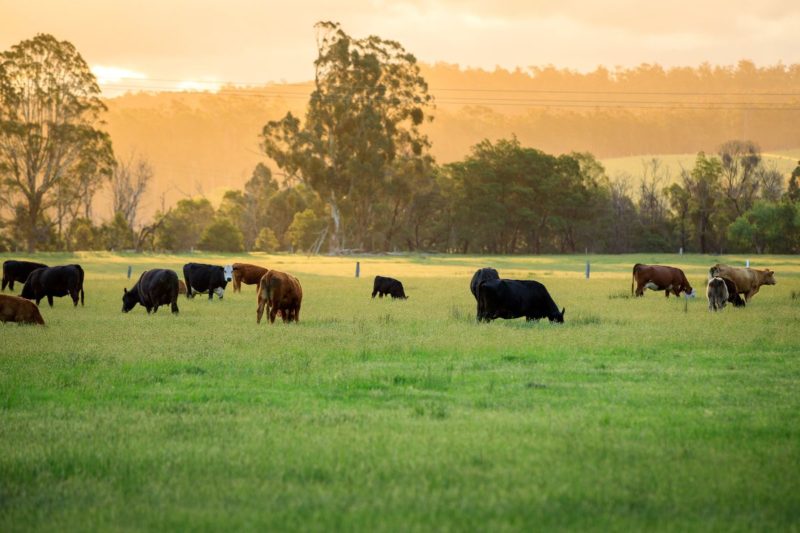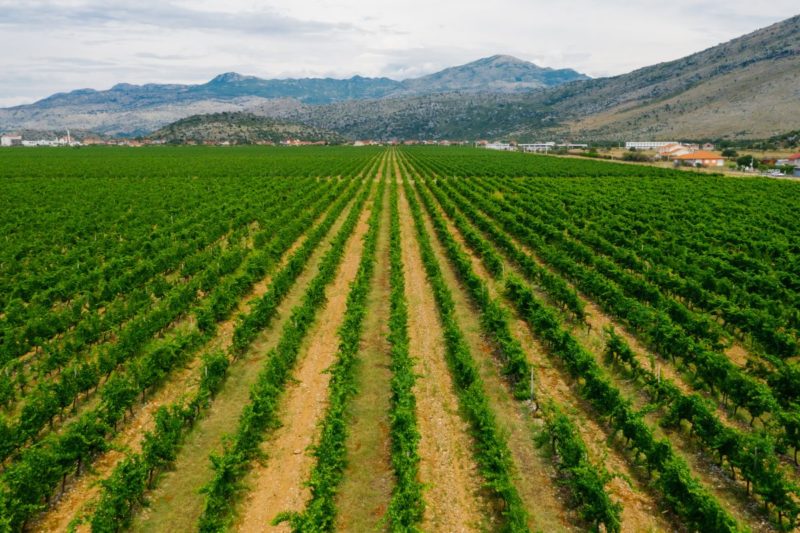Farmland investing is the act of putting money into land that is specifically used for agricultural purposes, such as growing crops or raising livestock.
Farmland may seem like a good idea. But as with any form of investment, there are certain disadvantages that you should take into consideration before investing.
So is investing in farmland a good idea?
This guide will explore the advantages and disadvantages of farmland investing so that you can make an informed decision.
What's Ahead...
Is Investing In Farmland A Good Idea?
Yes, investing in farmland is generally considered a good idea. This is because there is a high-demand for food across the world, which has made farmland incredibly profitable.
It is quite a secure investment, as it’s easy to make money from the land.
Yet, there are lots of important things to consider before rushing into becoming a farmland investor. For example, it is notoriously difficult to enter this industry.
The Pros Of Investing In Farmland
There are lots of reasons why farmland can be such a good investment, such as:
1. It Will Diversify Your Investment Portfolio
If you have a passion for investment, you should try to diversify your portfolio.
This diversity will protect your investments, as it will mean that you aren’t putting all your eggs in one basket (farming pun intended)!
So if you wish to diversify your investment assets, why not invest in farmland?
2. It Can Be Incredibly Profitable
As mentioned, the reason why farmland investments are considered relatively reliable is that it can be easy to make a profit.
3. It Provides Long-Term Returns
Though you will have to spend lots of money on farmland, you can receive long-term returns. This means that it is possible to recoup your original investment.
Given the high cost of land, these long-term returns will make farmland investing a worthwhile process.
Farmland offers high capital growth. If you are unfamiliar with this concept, capital growth refers to an increase in investments over a period of time.
4. You May Be Exempt From Taxes
In certain places, people who own agricultural land may experience tax exemptions and benefits.
For instance, this is the case in the United Kingdom, where farmland owners are often exempt from VAT.
They also may not have to pay Inheritance Tax, which is known as Agricultural Property Relief (APR).
5. You Can Make Money From Sales
It’s incredibly simple to make money off farmland. This is because you can sell the products that you raise here, such as crops and livestock.
So by investing money into farmland, you can sell your goods for a handsome profit.
Just bear in mind that this will require some farming knowledge. Not to mention, you will need to invest lots of money in equipment. You may even need to hire some farmhands.
6. Demand For Food Is Increasing
The world’s population is continuously growing. As a result, there are more mouths to feed than ever before. This means that farmland is incredibly valuable.
Even if you don’t want to grow your own crops and raise farm animals, you can rent this agricultural land out to farmers.
The high demand for food means that it shouldn’t be too hard to find someone to rent the land.
The Cons Of Investing In Farmland

After reading about the various benefits of investing in farmland, you might assume that this is a worthwhile investment opportunity.
Like all investments, farmland has its disadvantages, so let’s explore some of the cons of investing in Farmland:
1. It’s Difficult To Enter The Industry
Lots of farmland is owned by families. As a consequence, it can be passed down through families for generations.
This makes it really difficult to enter the industry. Unless your family already owns the land, you may not be able to get your hands on some farmland.
Even if this farmland is not owned by families, it can be owned by businesses, equity funds, or insurance firms.
As a result, you may not be able to get a foothold in this industry. Even when land enters the market, it is highly sought-after and tends to get snapped up quickly.
Given that land is essential for farming, you will need to find a way of overcoming this hurdle.
2. Land Is Expensive
As you can imagine, land is not an inexpensive commodity. Instead, it is a costly investment.
In recent years, it has spiked in price. This is likely due to the high demand for agricultural land.
Of course, the price fluctuates dramatically, so you may be able to snap up a bargain.
3. You Should Be Familiar With Land Laws
Given the difficulty surrounding the purchase of agricultural land, it can be extremely beneficial to be familiar with the land laws in your area.
Otherwise, it can be easy to get confused by the regulations surrounding the industry.
This can require lots of research. This is made even more confusing by the fact that each state tends to have slightly different laws.
Not to mention, the terminology and jargon surrounding the purchasing of land can be difficult to understand. Therefore, it can be helpful to have some knowledge in this area.
How Can You Make Money Through Farmland?
Before investing in farmland, you will need to consider how you will make a profit through this land.
After all, there’s little point in investing in land if you don’t plan on doing anything with it.
The good news is that there are lots of different ways in which you can make money through agricultural land, such as:
- Renting your farmland to other farmers can be incredibly profitable, as this will benefit both parties. Farmers can use this rented land to grow crops. This will be particularly useful in the spring, which tends to be the best time to plant crops.
- Transform the land into traditional farmland. Raise livestock, which can be sold as meat. Alternatively, you can focus on growing crops, such as corn or wheat.
- Create a fishing retreat on your land. Fishing is a well-liked pastime that is great at providing a great sense of escapism. So why not rent your land as a fishing retreat?
- Rent outbuildings on the farmland. Vintage barns are particularly popular with holidaymakers. Alternatively, you can rent the building for events, such as birthday parties and wedding receptions.
Frequently Asked Questions
What Are The Disadvantages Of Living On Farmland?
Farmland is often considered an ideal place to live. After all, many people find this rural environment to be incredibly peaceful.
Of course, there are also some downsides to living on farmland. For instance, you may experience bad smells, such as manure. Plus, farms can also be noisy, especially in the morning.
Therefore, if you are intending to invest in farmland for personal use, you should consider whether it’s right for you.
What Is Commercial Framing?
Commercial farming is a popular form of agriculture whereby crops are grown and livestock is raised primarily for commercial purposes.
These goods can be sold for money. This form of farming focuses on producing these crops on a large scale to make as much money as possible.
As a result, commercial farming is a great way of making money through farmland.
Final Thoughts
As this guide highlights, farmland investing can be a great idea. Thanks to the high potential for capital growth, agricultural land can lead to landowners making buckets of cash.
This is certainly the case if they use the land wisely, such as for the sale of crops and livestock.
Yet, investing in farmland can also be risky. Not to mention, you will need a large number of funds to pay for the land in the first place.
Therefore, it’s worth weighing up the pros and cons to help you decide whether or not farmland investing is suitable for you!
Paul Martinez is the founder of BendingDestiny.com. He is an expert in the areas of finance, real estate, and eCommerce.
Join him on BendingDestiny.com to learn how to improve your financial life and excel in these areas. Before starting this blog, Paul built from scratch and managed two multi-million dollar companies. One in the real estate sector and one in the eCommerce sector.


